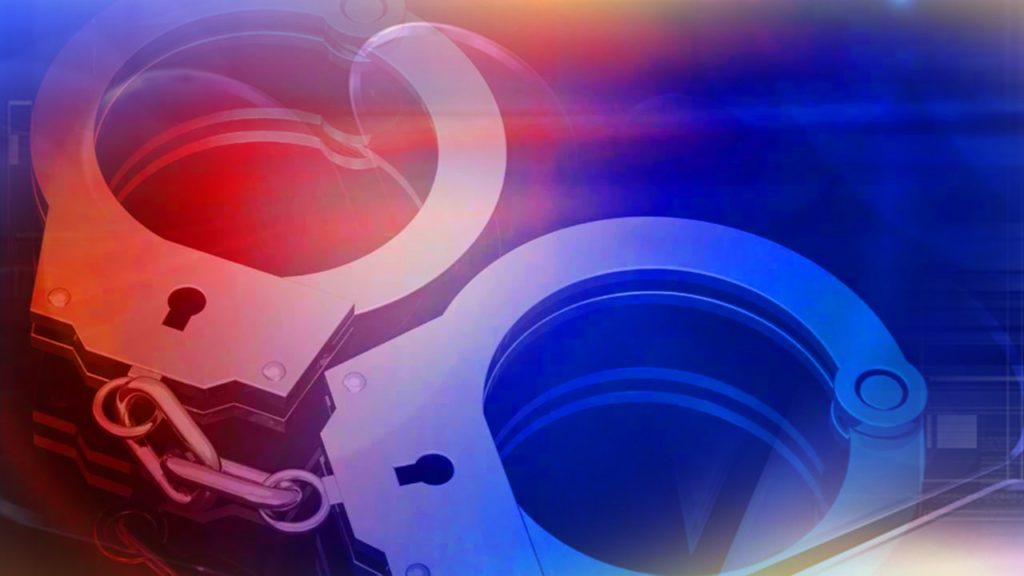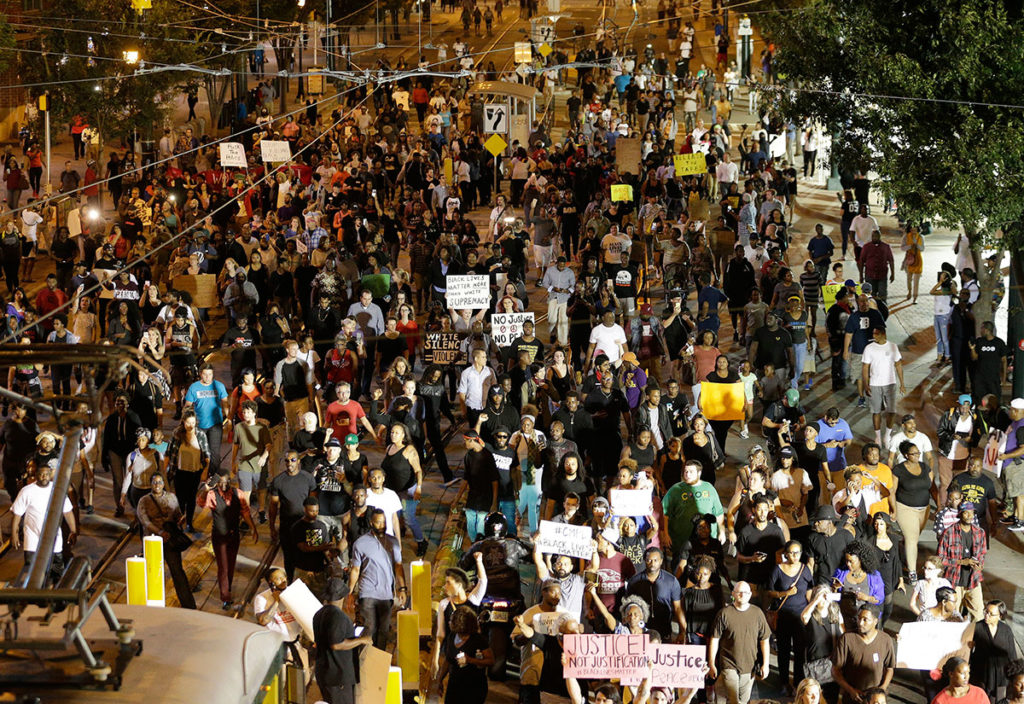Authorities arrest suspect in Thanksgiving shooting at Hoover mall where police killed man they thought was shooter

The Latest on a Thanksgiving night shooting at a mall in Alabama (all times local): 11:30 p.m. Authorities say they have arrested a suspect in a Thanksgiving night shooting at an Alabama shopping mall where police killed a man they thought was the shooter. The Alabama Law Enforcement Agency says 20-year-old Erron Martez Dequan Brown of Bessemer was charged with attempted murder in the Nov. 22 shooting at the Riverchase Galleria in Hoover. Inspector Frank Lempka with the U.S. Marshals in Atlanta said Brown was arrested Thursday morning at a relative’s home in South Fulton, just outside of Atlanta. Lempka said Brown was taken to the Fulton County jail for an extradition hearing to be sent back to Alabama. Emantic “EJ” Bradford Jr. was killed by an officer responding to the report of a mall shooting. Police said Bradford had a gun, and they initially blamed him for opening fire. They later retracted that allegation. ___ 10 a.m. Leaders of an Alabama city that’s been the target of protests since police shot and killed a black man in a shopping mall are asking the state for permission to release more information about the killing. Hoover city officials made the request during an appearance Thursday. They say they’ll look at releasing information on their own if no response comes by noon Monday. Demonstrators and relatives of Emantic “EJ” Bradford Jr. have pushed authorities to release video and other evidence. Bradford was killed by an officer responding to a report of a mall shooting on Thanksgiving. The state is investigating and so far has refused to release video and other information about the killing. A spokesman for the Alabama Law Enforcement Agency didn’t immediately respond to an email seeking comment. Republished with permission from the Associated Press.
Police shooting affects presidential politics in Charlotte

The killing of a black man by a Charlotte police officer, and the sometimes violent protests that followed, have intensified the political divide in a state crucial to deciding whether Hillary Clinton or Donald Trump wins the presidency. Republicans and Democrats alike say the killing of Keith Lamont Scott will energize both parties’ strongest supporters in a presidential battleground state that also has competitive races for governor and the U.S. Senate. Both camps are citing the case as they push familiar arguments on race relations, law enforcement and social unrest. “Both sides think they are right in this,” says Dee Stewart, a Republican consultant in North Carolina. “This all fits very well with Trump’s argument of ‘law and order’ and respecting our officers. It fits with the left’s narrative that anytime law enforcement acts with force in certain communities, it should be viewed with suspicion.” It’s unclear if or how Scott’s killing and its aftermath will affect undecided voters, but even subtle shifts in support can be crucial. Polls show a tight race in a state that Barack Obama barely lost in 2012 after barely winning in 2008. In the state-by-state contest for the presidency, it’s difficult to see how Trump can win the presidency without capturing North Carolina. Scott, 43, was shot Sept. 20 standing outside his vehicle. Police maintain he was armed. Video released by Charlotte-Mecklenburg authorities was inconclusive. The officer who shot Scott is also black. Both Trump and Clinton had planned appearances in Charlotte in the days after Scott’s death, but both canceled them. Trump has said little specifically about Scott and the Charlotte protests, beyond calling the situation “tragic.” But at Monday’s debate, he again cast himself as the “law-and-order” candidate. He chided Clinton for avoiding the same phrase, and he renewed his endorsement for the kind of “stop-and-frisk” police practices that critics deride as racial profiling. Clinton has campaigned extensively with Mothers of the Movement, a group of African-American women, some of whose sons have been killed by police. She called for Charlotte police to release their videos of the shootings before they had done so. Clinton also held a phone call with black pastors in the area. She campaigned Tuesday in the state capital, Raleigh, where she urged caution and said “there’s still a lot we don’t know” about Scott’s death and the police killing of Terence Crutcher four days earlier in Tulsa, Oklahoma. Throughout her campaign, Clinton has argued the United States must confront “systemic racism” in its law enforcement and criminal justice structure. Trump’s running mate Mike Pence has described that as “rhetoric of division” and declared that “the men and women of law enforcement are a not a force for racism in this country; they’re a force for good.” Alma Adams, a Democratic congresswoman whose district includes parts of Charlotte, said Clinton’s approach will appeal to African-American voters, millennials and others concerned about police practices. “They’re going to be looking for answers at the polls,” she said in an interview. Adams added that Trump’s rhetoric will stoke the Democratic base, pointing specifically to his comments a day after violent Charlotte protests dominated the news. Trump said “drugs are a very, very big factor in what you’re watching on television at night.” His campaign later said he was talking about America’s drug problem in general, not the protests. Still, Trump’s comments could influence voters like 19-year-old Niesy Figueroa, a student who said she knows some of Scott’s extended family and participated in peaceful protests. Figueroa said she’s not thrilled with casting her first presidential ballot for Clinton, but said Trump’s Charlotte reaction helps her get over her “hurt” that Bernie Sanders lost the Democratic nomination. “Trump? No,” Figueroa said. “He just seems a little racist.” Dallas Woodhouse, executive director of the state Republican Party, concedes that Democrats can add the Scott case to the argument aimed at their base. But he argues that the television images of the protests and Democratic rhetoric about police are more important to independent and moderate whites than anything Trump says about protesters. “Democrats come across always pointing the finger at police,” Woodhouse said. He recalled a scene at the Carolina Panthers football game Sunday in Charlotte, where he said he watched scores of fans seek out law enforcement officers. “This is still a Southern state, a cordial state, a state that has people lined up to thank the police because they think they are being unfairly maligned.” Republished with permission of the Associated Press.


